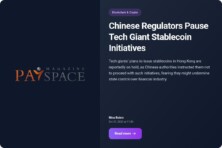The Netherlands reported on the decision to restrict the export of certain equipment that is necessary for the production of semiconductors, to China.

This decision is part of an international US campaign to restrict sales of computer chip technology to China. As part of these efforts, the American government is taking measures in the space of its economic and legal system, as well as encouraging other countries to take similar actions.
The Dutch government, commenting on the introduction of restrictive measures, did not mention the influence of the United States in this matter. The Dutch authorities have stated that the new regulations regarding the export of equipment to China are due to national security interests.
The Chinese government has already commented on the restrictions, saying that this decision does not meet the interests of any of the parties. The Chinese authorities also noted that the rule canceling the possibility of exporting equipment will have an impact on the chip manufacturing process and will become a negative factor for the supply chain.
Mao Ning, a spokeswoman for the Ministry of Foreign Affairs of China, said that this country opposes the abuse of export controls by the United States. She also stated the extremely negative perception of the American practice of forcing other countries to participate in the technological blockade of China.
Currently, there is a confrontation between the American and Chinese sides in the sphere of control over the supply of semiconductors. In the context of this situation, the United States pays special attention to limiting China’s ability to have access to chips that are necessary for artificial intelligence and supercomputers.
The money turnover of the chip industry currently stands at $500 billion. Experts predict that this figure will double by 2030. The confrontation within this sphere is understandable and to a certain extent natural. In the era of high technology, the superpower will be the country that fully controls the supply chain of chips.
In October last year, the United States decided on large-scale export restrictions on the supply of American chip-manufacturing tools to China. The U.S. government justified this decision by the fact that such products can be used for the development of the armed forces.
The level of effectiveness of these restrictions significantly increases if the relevant practice is not an initiative of a single country, but an international campaign. The decision of the Netherlands is a step towards the formation of a kind of coalition of the appropriate purpose.
The Dutch government has stated that the restrictions on its part are not all-consuming. From September 1, the date of entry into force of the new measures, the authorities will leave opportunities for the export of separate advanced equipment necessary for the production of semiconductors. This decision is particularly sensitive for ASML, the largest Dutch company. This firm is one of the world leaders in the production of chip equipment.
ASML has declared its intention to comply with all EU and US export regulations. The Company also believes that the new restrictions will not have a significant impact on its financial position.
Liesje Schreinemacher, Minister of Foreign Trade and Development Cooperation of the Netherlands said that certain chips could become an essential element in the modernization of the military industry. According to her, this circumstance is an example of the fact that the lack of control measures in the export of goods and technologies can pose a threat to national security. According to her, the Netherlands has an additional responsibility in this regard, because the country occupies a significant position in the technology sector.
As we have reported earlier, New US Ban To Restrict Access of China’s AI Firms to Chips.









